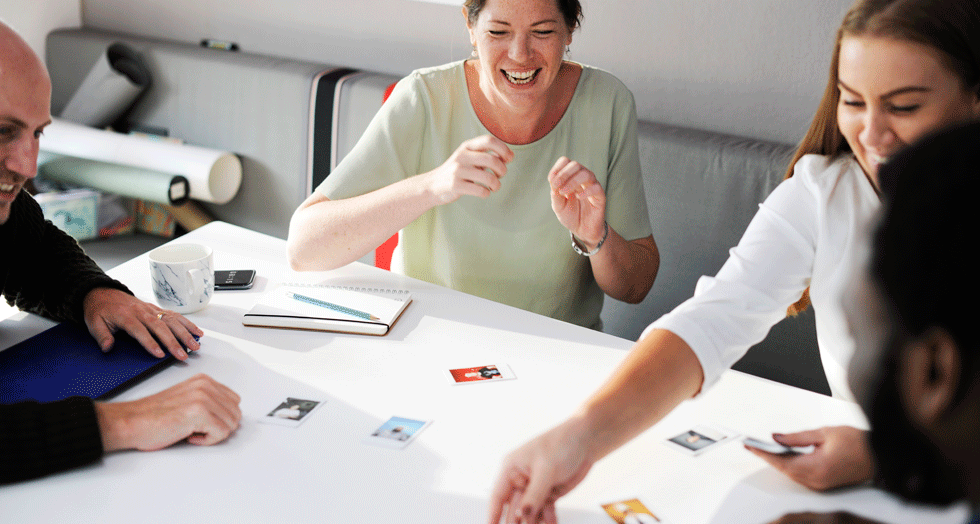Working your learning styles
 If you read my previous blog, What is your learning style, you’ll already know I am referring to working your learning styles and how it can be beneficial. It’s the best way to appreciate, enjoy and apply your learning.
If you read my previous blog, What is your learning style, you’ll already know I am referring to working your learning styles and how it can be beneficial. It’s the best way to appreciate, enjoy and apply your learning.
But I have a question: if you did read my previous blog – have you given it any further thought? Have you taken any action?
If yes, fantastic! Did you find that the actions you took reflect your learning styles? If it did then my case is made – making use of your own learning style really does work.
If not – or you haven’t read my earlier blog – can I suggest you do so before reading further?
Now let’s test the consequences of my theory. As a follow up to reading the blog did you:
- Share your thinking and ideas with your friends and colleagues – in the way an Activist might?
- Decide that you really needed time for personal thought and reflection before making a decision or taking any action – in the way a Reflector might?
- Think about how using this approach might benefit both your learning development plan and your wider organisation – similar to a Pragmatist?
- Decide that you really needed more information and questions answered before you could decide on whether it might work for you – in the way Theorist might?
Working your learning styles…
If you did then your style is a factor in the way you operate and taking a proactive stance towards making the best use of this knowledge in making decisions about your learning styles and development will be of value.
At best it can add real value to you and your organisation while at the least it will mean your learning is more enjoyable – so what’s to lose!
But you say, “that theory’s all well and good – with its promise of a greater return on capability investment, but how about some ideas on appropriate learning experiences to start us thinking?”
Okay – to start the ball rolling if you click on the picture of the person who best fits your learning styles – using Honey and Mumford’s terms – I’ve added some ideas of learning experiences that might just be beneficial to your learning styles.

Learning experiences
-
- Action learning
- Practical lessons learned
- Networking
- ‘Live’ situation workshops
- Volunteering activities
- Formal face to face learning (best when active practical sessions are included)

Learning experiences
-
- Self-directed study / on-line learning
- Peer support
- Reflect and learn sessions
- Shadowing others
- Informal lunch and learns
- Formal face to face learning (best with time for reflection included during the learning)

Learning experiences
-
- Lesson learned sessions
- Self-directed study
- Seminars – sharing experiences
- Volunteering activities
- Feedback / peer support
- Formal face to face learning (best when detailed case studies are included)

Learning experiences
-
- Action learning
- Giving back activities
- Live initiative/work workshops
- Stretching or developmental assignments
- Coaching / mentoring
- Formal face to face learning (best when real life exercises are included)
I realise some of these are obvious and feature in almost everyone’s personal development but some are not and may not have immediately struck you as learning or developmental activities. Remember learning is continuous; it happens every day. You might not always be aware of it but it still happens!
The trick? Be more aware and open to working your learning style all the time – it happens more often than you might think. That experience you shared about your change initiative – did the other person listen intently – asking more questions? Did they share something in return? Or perhaps did you follow up that hard lesson learned from a recent lessons learned session – and did you consider how slightly tweaking something you learned might just be what your project or programme needs to be successful?
That’s how learning on the job works. But more of that next time…
If you disagree, or would like to extend the debate, please drop me a line. You can contact me at: jnichols@citi.co.uk
Below you can access some of my other blogs written on similar and related topics:
What is your learning style?
No, not your dress sense - I’m referring to your learning style. Why? Because when it comes to your personal professional development......
08 November, 2017Traditional project management vs Agile
There appears to be three factors that demand special attention to enable organisations to make the best use of the evolving agile approaches to delivery and change management....
18 June, 2018The promise of PRINCE2 Agile – a perfect storm?
A perfect storm of circumstances in UK public sector project management is helping open the door to agile methods, and the promise of PRINCE2 Agile....
30 March, 2017





